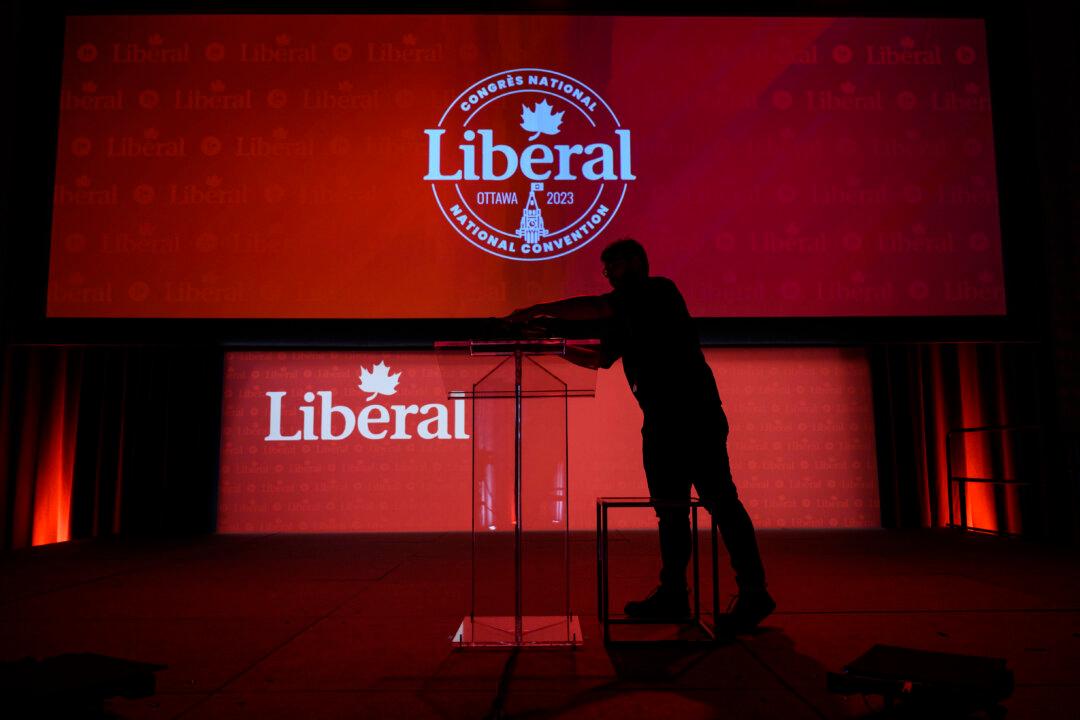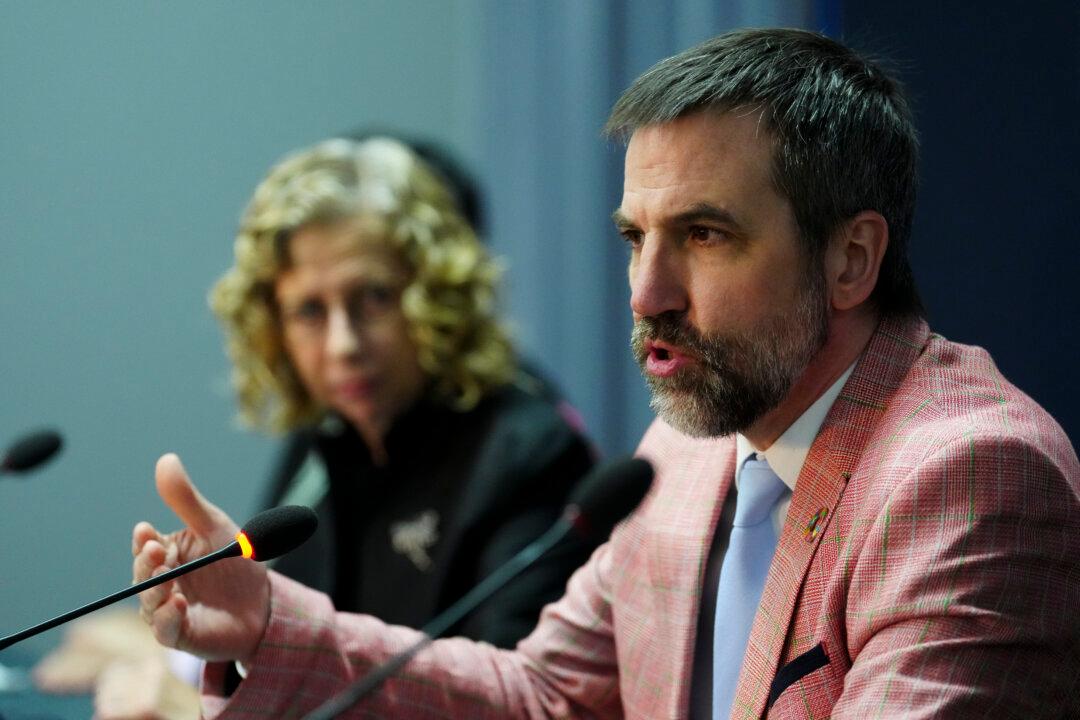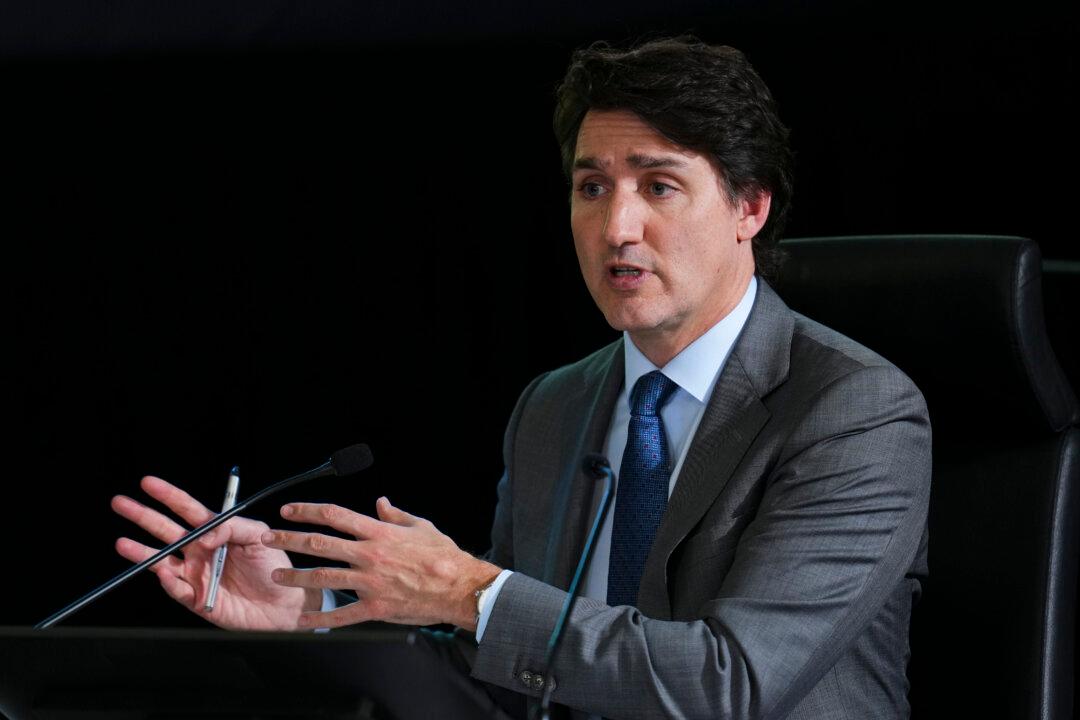The recent Liberal Party convention revealed just how anxious delegates are to censor online media, but that’s nothing compared to what the federal government has planned.
There was an abundance of insanity at the convention last weekend. Prime Minister Justin Trudeau’s “woke speech,” where he demanded Conservative Leader Pierre Poilievre “wake up” too and get his ideology in line with the progressive schedule was one of them.
There was the love-in between Deputy Prime Minister Chrystia Freeland and failed Democratic presidential candidate Hillary Clinton, where the polarizing former U.S. secretary of state lauded the Liberals for inspiring so many other countries to do wonderful things. Can you imagine if the Tories invited former president Donald Trump to their next convention for a self-congratulatory conversation on the couch?
Former prime minister Jean Chretien’s pathetic dismissal of China’s interference in Canadian elections must surely have been another below sea-level moment in a convention that reached the nadir of party politics.
But the real incident that defined exactly where the Liberals are in terms of policy and authoritarian thinking came when the delegates passed a policy resolution that would “explore options” to force online media to either reveal unnamed sources or have their stories banished from the internet.
This item, of course, was aimed at all the recent revelations about the Canadian Security Intelligence Service (CSIS) being aware of Chinese interference and communicating that knowledge to the Liberal government. The information came from a whistleblower within the intelligence agency—someone who knows sharing that information with the media could not only be hazardous to his or her career but perhaps even life threatening.
Some Liberals pretended to be aghast over the resolution passing and insisted it could never become part of Liberal government policy.
Justice Minister David Lametti, in a befuddled attempt to minimize the potential effect of the resolution, actually suggested that what happens at the convention stays at the convention, kind of like bad behaviour in Las Vegas, and that the government will just ignore radical ideas from delegates. The example he used, and this really makes you wonder if the injustice minister thinks before he speaks, was the legalization of marijuana. Lametti said Liberals used to talk about that all the time in the 1980s and it didn’t become law. Except it did—under Trudeau.
“A Liberal government would never implement a policy that would limit freedom of the press or dictate how journalists would do their work,” said Laura Scaffidi, a spokesperson for Heritage Minister Pablo Rodriguez.
But of course this Liberal government is already doing precisely that—with much more on the way.
The Senate passed the Online Streaming Act, or Bill C-11, on Apr. 27. It immediately received royal assent and became law, Heritage Canada—the government department entrusted with Trudeau’s perverse “digital agenda"—indicated with pride on its website.
C-11 demands that internet platforms provide Canadian content—that old Liberal standby. As if Canada is so vulnerable a nation that we must force media outlets to talk about us.
The Online Streaming Act will be followed by the Online News Act, Bill C-18—what I choose to call the online extortion bill. It will insist that social media platforms pay Canadian media for news stories. Postmedia, which owns virtually all the major dailies extant in Canada, is supporting the bill. Their revenue continues to shrink and they see this bill as a means of assuaging that loss. New media will likely be crushed by it as they cannot afford to litigate agreements with major social media groups.
But the worst is yet to come and you can read all about the Liberal game plan from the very informative Heritage Canada.
The innocuously entitled Online Safety Act has yet to receive a legislative number but could be tabled very soon. The Liberals first introduced the act in June 2021 as Bill C-36 but it died on the order table after the summer Parliamentary recess and a fall election.
Bill C-36 focused on the evils of “hate speech” on the internet. The new Online Safety bill will also encompass the Byzantine world of “disinformation,” which as we know can mean just about anything the government decides it should mean.
The Online Safety Act will quite simply be the most insidious and diabolical assault on free speech in Canadian history and is far more dangerous than anything the radical Trudeau acolytes introduced at the Liberal convention. This bill is an ode to censorship, composed by a Trudeau government that is easily offended by critics, opponents, and detractors. Just look at what it did to the Freedom Convoy.
Bill C-36 explained just how the government will deal with people attempting to peddle “hate speech” on the internet: “It amends the Canadian Human Rights Act to provide that it is a discriminatory practice to communicate or cause to be communicated hate speech by means of the Internet or other means of telecommunication in a context in which the hate speech is likely to foment detestation or vilification of an individual or group of individuals on the basis of a prohibited ground of discrimination.”
But the Online Safety Bill will also target “disinformation.” The good folks at Heritage Canada have been meeting with people who share their views and fears over the last two years as they have assiduously prepped this legislation. Session eight of the Expert Advisory Group on Online Safety came to this outrageous but utterly anticipated conclusion about why the government should not even bother to define disinformation: “Most experts expressed extreme caution against defining disinformation in legislation. Experts argued that the very process of defining disinformation in legislation is problematic for a number of reasons.”
The authors then make the startling admission: “First, defining disinformation would put the Government in a position to distinguish between what is true and false – which it simply cannot do.”
The summary also noted how “problematic” it can be to prove someone intentionally posted disinformation. It also pointed out that U.S. President Joe Biden’s “Disinformation Board” that briefly survived under the Department of Homeland Security was unsuccessful because it actually tried to describe what disinformation is.
So if you think the Liberals are up to no good by playing with the idea of forcing a media outlet to reveal its sources—they are. But they have much more nefarious plans in the offing and Canadians need to know these facts in order to resolve to resist this naked attack on our most basic freedoms.





